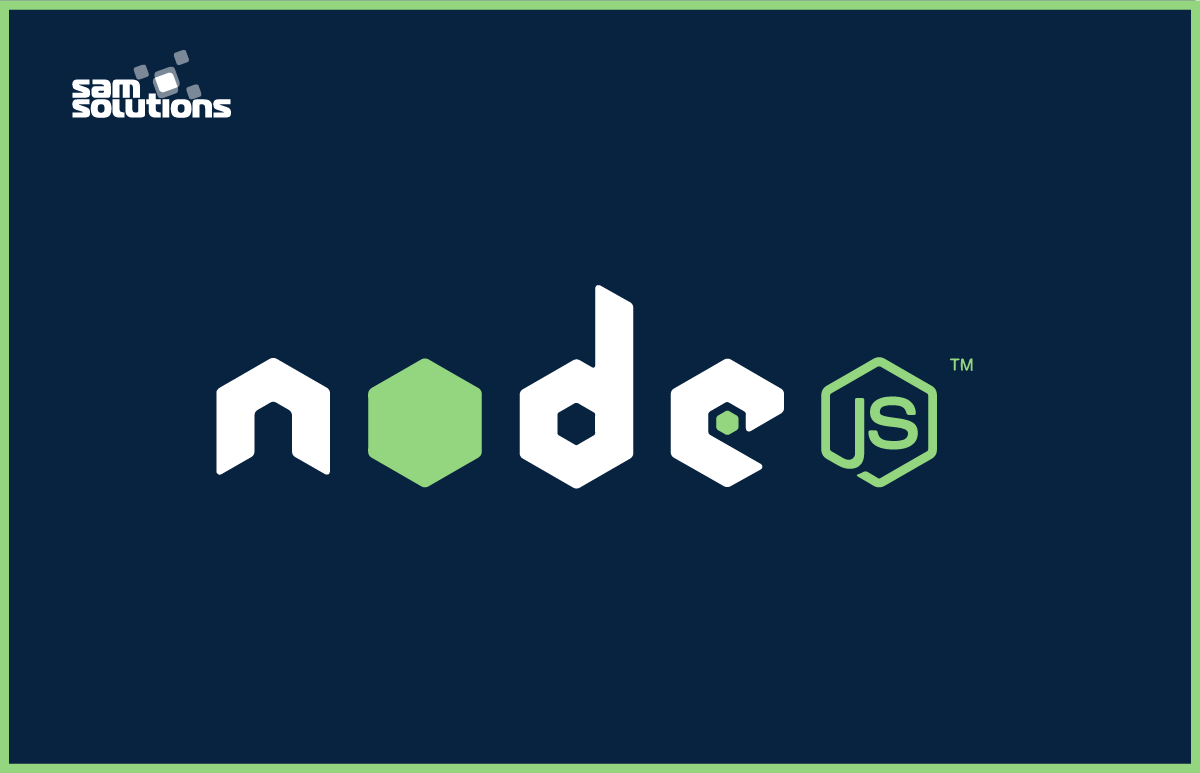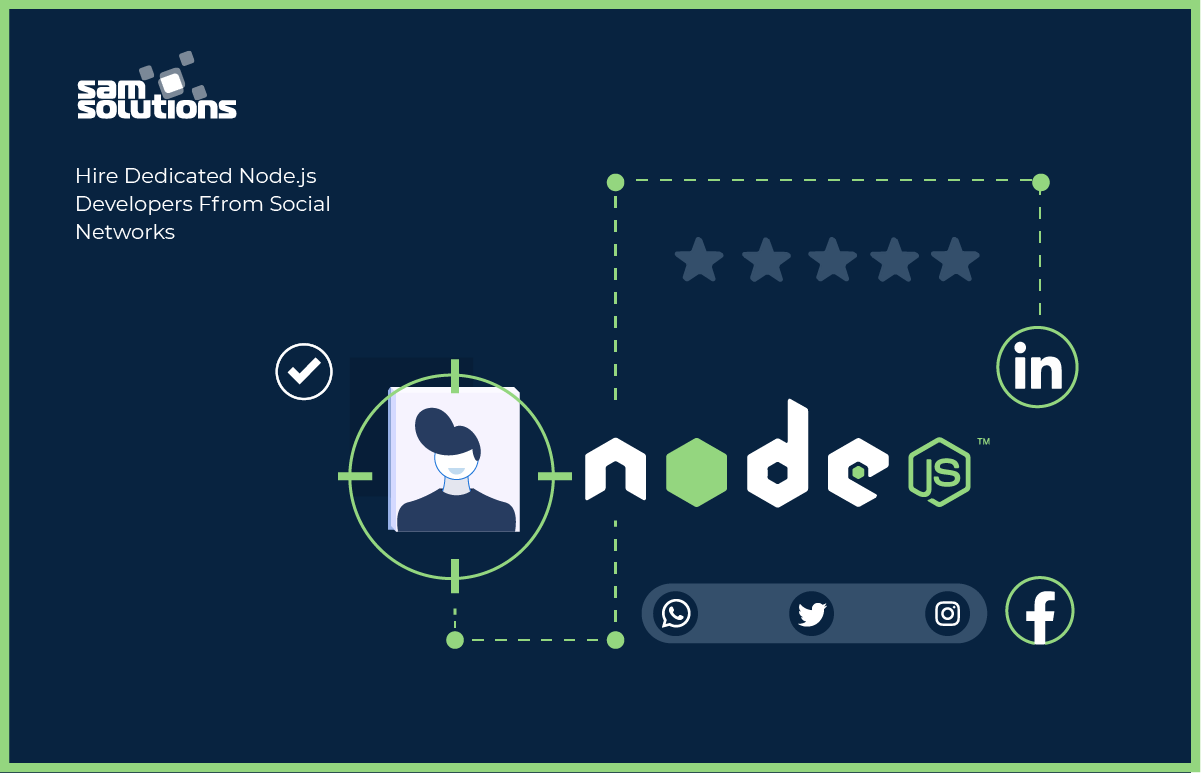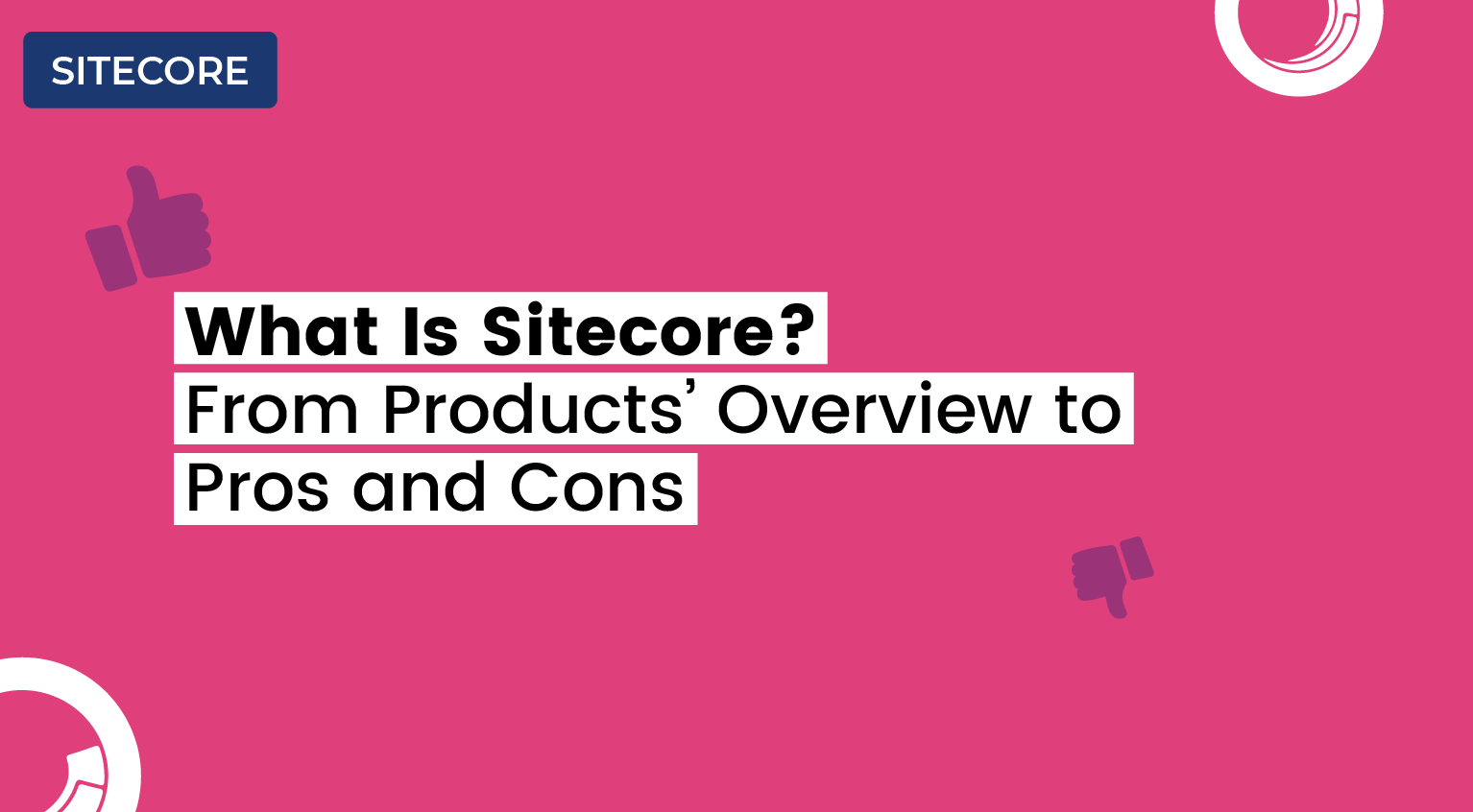About Node.js
Do you know that almost everyone in the tech industry, including big companies such as Netflix, LinkedIn, PayPal, Uber, and eBay, uses Node.js, an open-source and cross-platform JavaScript runtime environment? So let’s take a dive and learn more about why Node.js can be worth your time and investment in your future project.
As mentioned previously and according to the official Node.js website, the technology is “a JavaScript runtime built on Chrome’s V8 JavaScript engine.” It is used to run JavaScript code outside of a web browser, i.e. on a server.
JavaScript is a programming language that is used by almost 98% of all websites. At first, it was client-side (or front-end), i.e. was intended to add some interactivity to web pages on the side of a client.
Later, with the release of the first server-side JavaScript environment (LiveWire Pro Web), JavaScript started to be used not only on the client-side but also on the server, which is called “back-end.” It became possible to access databases, file systems, and servers using the language, just like using Java or C#.
However, LiveWire Pro Web had some issues as a server-side JavaScript environment, in particular, a problem of blocking by the Apache web server of the entire process due to a large number of concurrent connections. So, thirteen years later, in 2009, Ryan Dahl created Node.js, a new runtime, in order to overcome them.
Dahl originally referred to his project as web.js. It was simply a web server, a replacement for Apache. However, the project quickly expanded beyond its initial webserver library, becoming a runtime that could be used to build almost anything. So he renamed it node.js.
If we look at the Node.js logo, we can see the hexagon, which, likely, represents a building block (node here means a specific piece of content within a project, i.e. a block for building the content).

The ”.js” indicates that the programming language you should use with Node.js is JavaScript or anything that compiles to it like TypeScript.
To sum up, Node.js is neither a programming language nor a framework, but a runtime environment for executing JavaScript code on a server.
Since its inception, Node.js has been downloaded over a billion times. That fact alone should demonstrate how critical this runtime has become over the years.
Advantages of Node.js for your business
So, what are the reasons for such popularity of Node.js? Let’s see some of its advantages that can bring value to your business.
1. Short time-to-market
One of the most important lessons that every business owner or executive learns sooner or later is that time is money and even a little time can make a huge difference in beating your rivals to market and not losing the competition.
The sooner you put your million dollar idea into action, the better your chances of making it real.
Node.js is a blessing for businesses who want to build their applications quickly. It enables developers to reuse code from NPM, the online repository, which contains over 1 million open-source packages available for solving programming tasks. By employing such existing solutions, coders don’t need to work from scratch reinventing the wheel, which saves development time significantly.
A quick fact to consider: the Node.js app for PayPal was built almost twice as fast and with fewer people as the previous Java-based app.
This is why this technology is so popular for the development of MVPs (minimum viable products). With Node.js, startuppers can go from a concept to a finished product in a flash.
2. High scalability
A successful application performs well at any load. It should be able to seamlessly handle any possible increase in traffic or usage. Such an ability is called “scalability.”
For instance, if your software system starts with supporting 1K users and can be easily expanded to serve 100K users without redesigning, it is considered highly scalable.
Therefore, you should bear in mind this quality from the very beginning, in the designing stage of your project.
Node.js is an event-driven non-blocking runtime environment. Such architecture ensures high scalability of an application and allows for processing a much larger quantity of requests (e.g. requests to a database) than a traditional web server that has a finite number of processes it can execute within a given time period.
Therefore, with Node.js, you don’t have to worry about the performance of your app in case of popularity growth in its popularity.
3. Increased performance
Speaking of performance, it should not go without mention that Node’s the above-mentioned asynchronous architecture also made it possible to shorten response time, since a larger number of requests can be processed without blocking the thread.
The high speed of Node.js can be also attributed to Google’s V8, a JavaScript engine, used in this runtime. V8, which is written in C++, translates JavaScript code into machine instructions, and it does so quickly even on less-than-perfect hardware. As a result, performance increases.
Going back to the above example with PayPal, after migration from Java to JavaScript and Node.js in 2013 the app showed a 35% decrease in the average response time, which means that pages started being served 200 ms faster. Moreover, the number of requests handled per second doubled.
4. Increased efficiency of the development process
The final advantage of using Node.js is that you don’t need to divide your development team into those who code for the front-end (visible part of the application, or the “client-side part”), using HTML, CSS and JavaScript, and those who code for back-end (the application layer that cannot be seen by users, i.e. the “server-side part”), using, for example, Java or PHP.
With Node.js, your engineers can write both the client- and server-side parts in JavaScript. It implies that less code is required because it can be reused in various parts of your application.
For example, the Node.js app for PayPal was written in 33% fewer lines of code than the previous Java-based app.
Secondly, the collaboration within your engineering team will be more efficient. Since all developers use the same programming language (JavaScript), they can better understand each other and quickly react to user’s needs at any part of the application.
Moreover, you can find full-stack developers coding both for front-end and back-end. As a result, your team will be smaller, therefore, more manageable and efficient, and, most probably, the cost of development will reduce.
Applications That Can Be Built With Node.js
Node.js can be used to build any type of application. However, the best uses of the technology, given its non-blocking, asynchronous architecture, include real-time apps, such as:
- chat and messaging apps;
- social media apps;
- streaming platforms; and
- multiplayer games.
Node.js Full-Stack Developer roles and responsibilities
As mentioned above, development can be divided into two domains: front-end and back-end. Each of these parts requires the use of different technologies and tools: HTML, CSS and JavaScript for front-end and Java, PHP or another server-side programming language for back-end. So usually there are distinct career paths and jobs for them.
However, there are professionals who can work in both domains, front-end and back-end development. They are referred to as “full-stack developers.”
While the front-end technology is almost the same and differs only in the JavaScript framework used – Angular, React and so on, the back-end can vary. For example, it can be PHP (PHP full-stack developer) or Java (Java full-stack developer). The name at the very beginning of the specialty speaks for the technology used for back-end.
When you hire Node.js full-stack developers, the main programming language is the same for both front-end and back-end – JavaScript.
Apart from JavaScript, HTML, CSS, and Node.js itself, the stack usually includes:
- Express.js, Nest.js, Koa.js, and other frameworks;
- package managers npm, yarn;
- web sockets;
- REST APIs;
- relational databases (RDBMS) and/or NoSQL; and
- other specialized technologies, such as Docker and cloud computing platforms.
Using these technologies, Node.js full-stack developers create both client-side and server-side components of an application and manage data exchange between servers and end-users.
Skills required for a full-stack Node.js developer
No wonder that, in order to work successfully, a Node.js developer should know the technology stack.
Knowledge of JavaScript/TypeScript. As mentioned before, the ‘js’ in Node.js stands for JavaScript, the programming language. Therefore, Node.js developers should be familiar with JavaScript or TypeScript. This is the very basics.
Experience with Node.js. Evidently, a programmer should have experience working with Node.js (at least 2+ years) confirmed by a portfolio of numerous projects.
Front-end technologies. Front-end (the part of the application that the user sees) is an integral part of development. Thus, Node.js developers must be familiar with front-end design and development tools such as HTML, CSS, and front-end frameworks (React, Angular, Vue, etc.).
Server-side web frameworks. Frameworks are essential to the Node.js ecosystem because they extend Node.js’s features and functionality. While there are numerous Node.js frameworks to choose from, it is critical that the web developer you hire is well-versed in them.
The majority of Node.js developers are aware that Express is the foundational framework that all Node.js developers and programmers should be familiar with. Other frameworks, such as Koa.js, Hapi, and Total.js, were created to extend Express’s basic functionalities.
Understanding of RESTful APIs and API communications. When you hire Node.js programmers, make sure they understand how to interpret existing API codes. In a nutshell, they must deal with interactions between multiple systems.
As a result, excellent understanding and creation skills in custom ReSTful APIs are required in Node.js development.
Version control system (VCS). Every full-stack developer should use a version control system (VCS) such as Git — an open-source VCS that allows tracking changes in source code during software development.
Databases. Because all applications require a database to store data, a skilled full-stack developer should be familiar with a variety of SQL and NoSQL databases.
Docker. Docker is a containerization platform for packaging an application and its dependencies into a “box,” known as a container, and is often used with Node.js. This ensures that the application runs smoothly regardless of any changes in the environment. Therefore, a programmer should know how to work with Docker.
Process management. A coder should be also familiar with PM2, an open-source process manager, which is used to monitor and manage Node.js application’s lifecycle in production.
Cloud computing platforms. A full-stack Node.js developer should have experience in deployment of applications to cloud computing platforms, such as AWS and Google Cloud.
Knowledge of unit testing frameworks. Any code may contain bugs. To find and fix them during the development process, a Node.js programmer should know how to test individual units of an application created by him/her.
Top 10 Node.js packages every developer needs to know
When developing a Node.js application, the code becomes more complex and therefore less manageable or maintainable. It is more convenient to divide it into separate logical units – JavaScript files containing functions, objects and methods – and include them in the main file.
Such files are called “modules.” You can develop your own custom modules or use ready-made ones available in the market.
A group of one or more modules is referred to as a “package.” Packages are organized by package managers, the most popular of which is npm. Its website, npmjs.com, hosts thousands of packages available for free download and use.
There are many choices to pick from, so, based on our experience, we’ve decided to give you the top 10 Node.js packages you should consider when working with Node.js:
- Webpack – a module bundler intended to package JavaScript files for use in browsers;
- Express – the most widely used, quick, and minimalist web framework for Node.js backends;
- Socket.IO – a realtime framework server;
- Async – a utility module that simplifies using asynchronous JavaScript code;
- Lodash/Underscore.js – utility libraries that make working with arrays, numbers, objects, strings, and other data types easier in JavaScript;
- Passport – Express-compatible middleware used to handle authorization/authentication requests, allowing the developer to apply any logic in order to authenticate a user, routes, or database schemas;
- Mongoose – a MongoDB object modeling tool that works in an asynchronous environment, supporting both promises and callbacks;
- NestJS – a cutting-edge Node.js framework for developing efficient, robust, and scalable server-side applications;
- Winston – a logging middleware that processes your Node.js app’s behavior and writes this useful data to a log file or database for debugging purposes;
- Jest – with this JavaScript testing framework, you can be sure that your code works correctly.
How to interview Full-Stack Node JS developers?
When interviewing Node.js developers, look for candidates who have experience with JavaScript coding and the ability to ensure optimal web application performance. Candidates who lack collaboration skills and have little experience should be avoided.
How to hire Full-Stack Node.js Developers?
Once you’ve decided to build your software using Node.js and engage developers for this purpose, one question still remains: How?
Full-stack Node.js developers don’t grow on trees. So hiring the talent you need for your project is not always easy.
At first, you should find them. For this purpose, you can use freelancing and review websites.
Next, you need to check the developers’ technical knowledge, completed projects, and so on.
Finally, when you find that everything about that full stack developer is satisfactory, you stick with them and their team.
In hiring Node.js programmers, there is one more question to be answered. Should you hire in-house developers or an outside development firm? Or, maybe, freelancers?
There is no one-size-fits-all solution, but by weighing the advantages of all the options, you can select the one that is best suited to your company’s specific needs.
In the tables below, we’ve summarized information on the pros and cons of each option separately.
Hire a Freelance Node.js Developer
Advantages & Disadvantages
Advantages | Disadvantages |
| you are not limited to hiring someone talented who lives nearby or is willing to relocate, but you can hire from anywhere in the world | it is not always reliable: a freelancer may fail to deliver a project on time, may disappear without notice and not respond to your messages |
| you would not be required to pay social | work by a freelancer necessitates |
| security, health insurance, or other benefits | supervision |
Hire an In-House Node.js Developer
Advantages & Disadvantages
Advantages | Disadvantages |
| in-house developers are a part of the company and are more likely to be dedicated to the company’s success | if you hire Node.js in-house developers, it can be more expensive compared to working with freelancers |
| better communication: you can communicate with your developers easier, face to face, thereby avoiding any misunderstanding | the talent pool would be limited |
Outsourcing model
Advantages & Disadvantages
Advantages | Disadvantages |
| you don’t have to manage developers yourself | communication issues: these can arise when working with firms from different cultural contexts and remote time zones |
| you are able to scale your team up or down based on your requirements |
Hire Dedicated Node.js Developers From Social Networks

Advantages & Disadvantages
Social media platforms, such as LinkedIn, Facebook, and Twitter, are one of the most convenient tools for recruiting employees in the IT industry. Hiring Node.js developers is no exception.
By using social networks, the employer can conduct a background check on a potential employee in no time seeing their statuses, tweets, and comments. The applicant’s personality is often clearly visible in his/her account and, therefore, can be judged against various criteria important for your company.
On the flip side, some job seekers, including those with relevant experiences and valuable skills, can have little to no social media presence or keep it fake. So recruiters can miss out on such candidates by solely relying on social networks.
Hiring Node.js developers at SaM Solutions
If you want to build a high-quality web or mobile application, outsourcing its development is a great way to do it. Work with us and we’ll make it easy and secure.
With over 30 years in the software engineering business, we’ve built a network of offices worldwide to serve customers in different regions and time zones. In particular, our presence covers the U.S., Western Europe (Germany and the Netherlands), and Eastern Europe. Wherever you are, we are close to you and speak your language. Therefore, time zone issues and communication barriers won’t bother you during our collaboration.
We offer a wide range of services, including web development using Node.js. Our developers have extensive experience with this technology as a backend in web applications built for a variety of industries. We know how to exploit its benefits to speed up the development of your app, and make it more cost-effective, fast, and scalable.
Contact us and you won’t be disappointed. This is confirmed by over 20 of our clients with 15+ years of partnership.
Need more proof? Find our customers’ reviews on Clutch where we are rated 4.5 out of 5 and read our case studies.
Conclusion
Node.js is a powerful tool to develop scalable applications. It offers significant speed and performance advantages for both front-end and back-end development. No wonder, it is so popular.
Its single-threaded, asynchronous, and event-driven architecture sets it apart from other technologies, allowing for the handling of a large number of concurrent requests. With Node.js, you can build a high-traffic network app with incredible performance. Welcome to the real-time web!


